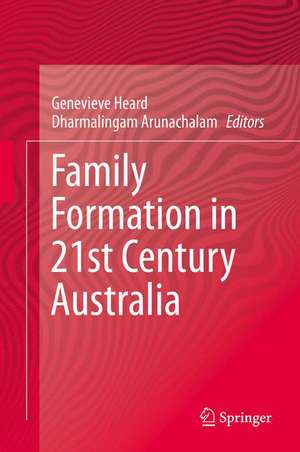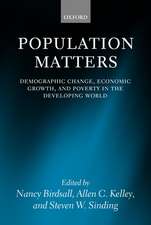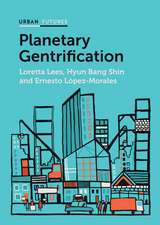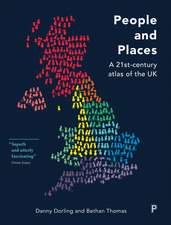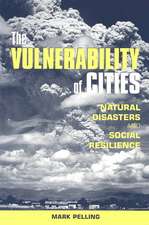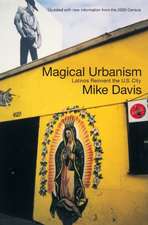Family Formation in 21st Century Australia
Editat de Genevieve Heard, Dharmalingam Arunachalamen Limba Engleză Hardback – 28 oct 2014
The first contemporary volume on the subject, Family Formation in 21st Century Australia chronicles significant changes in partnering and fertility. In the late 20th century, cohabitation, divorce and births outside marriage rose dramatically. Yet family formation patterns continue to evolve, requiring fresh analysis. Even since the turn of the century, divorce has stabilized and fertility has increased.
Using information from the 2011 Australian Census and from large-scale surveys, leading Australian academics dissect recent trends in cohabitation, ‘living apart together’, marriage, interethnic partnering, relationship dissolution, repartnering, contraceptive use and fertility. Since there is more diversity in family formation patterns than ever before, the book also considers differences between groups within the Australian population. Which groups are more likely to marry, cohabit or have higher fertility? And how do patterns differ among indigenous, migrant or same sex attracted Australians?.
| Toate formatele și edițiile | Preț | Express |
|---|---|---|
| Paperback (1) | 557.21 lei 39-44 zile | |
| SPRINGER NETHERLANDS – 23 aug 2016 | 557.21 lei 39-44 zile | |
| Hardback (1) | 567.88 lei 39-44 zile | |
| SPRINGER NETHERLANDS – 28 oct 2014 | 567.88 lei 39-44 zile |
Preț: 567.88 lei
Preț vechi: 709.85 lei
-20% Nou
Puncte Express: 852
Preț estimativ în valută:
108.67€ • 116.20$ • 90.60£
108.67€ • 116.20$ • 90.60£
Carte tipărită la comandă
Livrare economică 14-19 aprilie
Preluare comenzi: 021 569.72.76
Specificații
ISBN-13: 9789401792783
ISBN-10: 940179278X
Pagini: 247
Ilustrații: VIII, 247 p. 52 illus., 31 illus. in color.
Dimensiuni: 155 x 235 x 19 mm
Greutate: 0.54 kg
Ediția:2015
Editura: SPRINGER NETHERLANDS
Colecția Springer
Locul publicării:Dordrecht, Netherlands
ISBN-10: 940179278X
Pagini: 247
Ilustrații: VIII, 247 p. 52 illus., 31 illus. in color.
Dimensiuni: 155 x 235 x 19 mm
Greutate: 0.54 kg
Ediția:2015
Editura: SPRINGER NETHERLANDS
Colecția Springer
Locul publicării:Dordrecht, Netherlands
Public țintă
ResearchCuprins
1: Introduction: Genevieve Heard.- 2: Entering a union in the 21st Century: Cohabitation and ‘Living Apart Together’: Ann Evans.- 3: Marriage: Janeen Baxter, Belinda Hewitt and Judy Rose.- 4: Interethnic partnering: patterns by birthplace, ancestry and Indigenous status: Lyndon Walker and Genevieve Heard.- 5: Relationship Dissolution: Belinda Hewitt and Janeen Baxter.- 6: Repartnering: Edith Gray.- 7: Patterns of contraceptive use: Edith Gray and A. Dharmalingam.- 8: Australians’ desire for children: A. Dharmalingam and Genevieve Heard.- 9: Fertility differentials: Genevieve Heard.- 10: Indigenous Family Formation: Nicholas Biddle and Kim Johnstone.- 11: Familiarly queer? Same sex relationships and family formation: Deborah Dempsey.- Technical Appendix: the HILDA survey.- Index.
Textul de pe ultima copertă
This book provides a detailed, up-to-date snapshot of Australian family formation, answering such questions as ‘what do our families look like?’, and ‘how have they come to be this way?’ The book applies sociological insights to a broad range of demographic trends, painting a comprehensive picture of the changing ways in which Australians are creating families.
The first contemporary volume on the subject, Family Formation in 21st Century Australia chronicles significant changes in partnering and fertility. In the late 20th century, cohabitation, divorce, and births outside marriage rose dramatically. Yet family formation patterns continue to evolve, requiring fresh analysis. Even since the turn of the century, divorce has stabilized and fertility has increased.
Using information from the 2011 Australian Census and from large-scale surveys, leading Australian academics dissect recent trends in cohabitation, ‘living apart together’, marriage, interethnic partnering, relationship dissolution, repartnering, contraceptive use and fertility. Since there is more diversity in family formation patterns than ever before, the book also considers differences between groups within the Australian population. Which groups are more likely to marry, cohabit or have higher fertility? And how do patterns differ among indigenous, migrant or same sex attracted Australians?
The first contemporary volume on the subject, Family Formation in 21st Century Australia chronicles significant changes in partnering and fertility. In the late 20th century, cohabitation, divorce, and births outside marriage rose dramatically. Yet family formation patterns continue to evolve, requiring fresh analysis. Even since the turn of the century, divorce has stabilized and fertility has increased.
Using information from the 2011 Australian Census and from large-scale surveys, leading Australian academics dissect recent trends in cohabitation, ‘living apart together’, marriage, interethnic partnering, relationship dissolution, repartnering, contraceptive use and fertility. Since there is more diversity in family formation patterns than ever before, the book also considers differences between groups within the Australian population. Which groups are more likely to marry, cohabit or have higher fertility? And how do patterns differ among indigenous, migrant or same sex attracted Australians?
Caracteristici
Area of rapid and fascinating change Timely update using new data from the 2011 Australian census and from the first ten waves (2001-2011) of the longitudinal HILDA survey The only contemporary volume on the subject Rigorous data analysis and thoughtful commentary Contributions from leading Australian demographers and sociologists Includes supplementary material: sn.pub/extras
